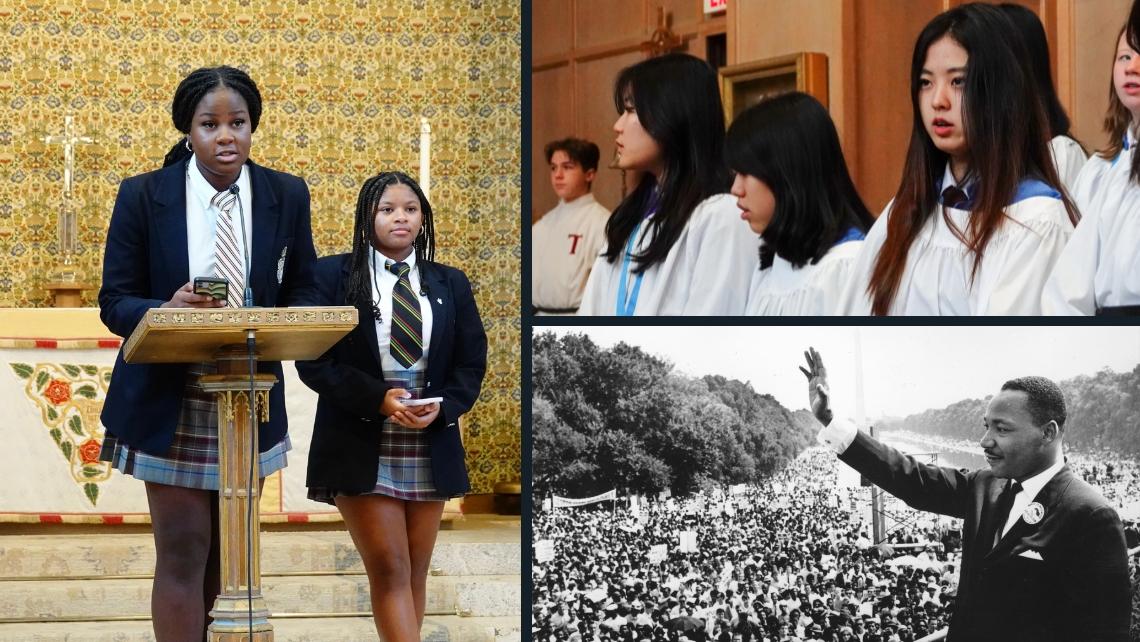January 15, 2024 would have marked the 95th birthday of Martin Luther King, Jr. Born in 1929 in Atlanta, Georgia, Dr. King was the son of a prominent Baptist minister and would go on to enter the ministry himself. In 1955, Dr. King took a leadership role in the Montgomery bus boycott, and this led to him becoming a national figure in the U.S. civil rights movement. He is credited for his dedicated work aimed at ending racial segregation through non-violent means; he was awarded the Nobel Prize for Peace in 1964. Dr. King was assassinated on April 4, 1968 in Memphis, Tennessee, where he had been speaking in support of a sanitation workers’ strike.
In recognition of Dr. King’s influence in the fight for racial justice and equality, the third Monday each January has been named Martin Luther King, Jr. Day. This week, TCS students took time to honour Dr. King’s legacy and commit to taking action today.
In the Senior School, students representing the Black Student Alliance (BSA) spoke in Monday morning’s chapel service, and followed up with an email to students and staff. BSA leaders Golden Onyekere and Sienna Taylor wrote, “In the American civil rights movement, Dr. Martin Luther King, Jr. was a key figure who promoted racial justice, equality, and the abolition of segregation. His work produced important landmarks like the Voting Rights Act of 1965 and the Civil Rights Act of 1964, which had a major impact on the destiny of the Black community in the United States… This day offers a chance for people from every path of life to gather together, reflect on the steps that have been taken toward achieving genuine equality and justice for everyone, and serves as a crucial reminder of the continuous struggle for civil rights.”
The BSA outlined four ways we can act to further racial justice: to educate ourselves about Dr. King and the civil rights movement; to engage in meaningful discussions about Dr. King and the fight for racial equality in the past and today; to celebrate the resilience, strength and achievements of the Black community; and to recognize the cultural contributions of the Black community.
In addition to the BSA presentation, Canon Don Aitchison spoke to Dr. King’s legacy during the chapel service, and the choir, under the direction of Mr. Randy Mills, sang U2’s MLK.
In the Junior School, students in the Allies Against Racism and Discrimination (AARD) group created a video about Dr. King that was watched Monday in homeforms. As well, the students created slides that were displayed on the screen outside the main office in Boulden House, to help inform their peers.






